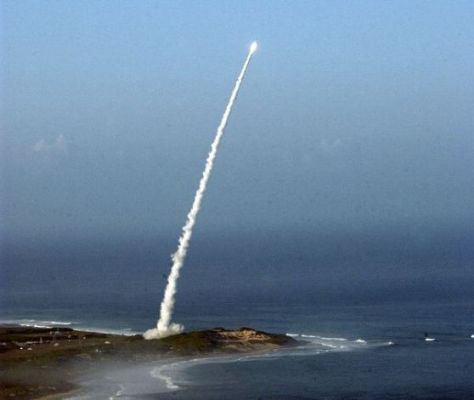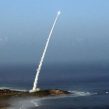
NATO-Russian Discussions Fail on Missile Defense: Implications for Negotiations on Non-Strategic Nuclear Weapons
Publication: Eurasia Daily Monitor Volume: 8 Issue: 119
By:

(Part One)
Over the last several months most of the conversation on NATO-Russia cooperation has focused on NATO-Russia discussions of European missile defense. President Dmitry Medvedev during the NATO summit in Lisbon in November 2010 indicated more willingness to cooperate with the Alliance in the development of a mutual missile defense system for Europe. The summit had left open the terms of such cooperation and the ensuing discussions did lead to an agreement on terms of cooperation at the session of the NATO-Russia Council (NRC) during the meeting of NATO’s defense ministers in Brussels on June 8-9.
US Secretary of Defense, Robert Gates, attending his last such meeting lamented the failure of the talks to lead to concrete proposals for NATO-Russia cooperation in the area of missile defense. Gates stated: “While I had hoped we would be ready to move ahead on this subject in the NRC, it is clear that we will need more time. I think the Russians have a long history of hostility and wariness about missile defense, and so I think we just have to keep working at it” (Bloomberg, June 9).
Gates’ pessimism about the outcome of the talks was in keeping with the statements by Russia’s Ambassador to NATO, Dmitry Rogozin, before the talks even began. On June 7, Rogozin gave an interview on Rossiya-24 TV channel and stated: “Any attempts by those in NATO who dream of neutralizing our strategic potential will be futile. We have enough capacity to create both defensive and offensive means to counter any missile threat and to penetrate any missile defense.” Rogozin went further to say that “nuclear deterrence” was Moscow’s “only guarantor of Russia’s sovereignty,” on which it would not compromise (RIA Novosti, June 7).
The response in Russia to the lack of positive results in Brussels addressed both the absense of progress on joint missile defense and the overall condition of NATO in the wake of the Brussels meeting. Fyodor Lukyanov, the editor of Global Affairs, pronounced NATO-Russia cooperation in the area as dead and stated flatly that Medvedev’s proposals for cooperation on territorial defense had been flawed from the start because they would have to be involved in some compromise of Russian strategic independence, which simply contradicted Russia’s national security culture. Russian interests in this fashion were well served when NATO’s Secretary-General, Anders Fogh Rasmussen declared: “NATO cannot outsource to non-members collective defense obligations which bind its members. And NATO’s territorial missile defense system will be part of such a collective defense framework. We assume that Russia is not ready to cede its sovereignty either” (RIA Novosti, June 9).
This position left open the prospect of cooperation between separate NATO and Russian missile systems. But Lukyanov gives that prospect little chance of success for political reasons because both Russia and the United States have entered upon the season of presidential elections with the Russian vote in March 2012 and the US election in November of the same year. Missile defense cannot be treated outside the context of a Euro-Atlantic setting that has not broken free of Cold War inertia even as a Eurasian geopolitical environment very different from the Cold War has emerged (RIA Novosti, June 9).
Five days after his initial commentary on missile defense, Lukyanov returned to the issue of the NATO Defense Ministers’ meeting and on the basis of Secretary Gates’ comments on burden-sharing in NATO concluded that US displeasure over its increasing share of the NATO defense burden was leading to Washington reviewing its commitment to the Alliance. A second major source of conflict concerned out-of-area commitments. Lukyanov stated: “The Europeans are unwilling to fight wars in general, particularly far from home which is exactly where the United States needs their help.” He did not see much future for the Alliance as a player in global security unless its members embraced collectively the geopolitical shift in world politics towards Asia. NATO would not be abolished; it would only become irrelevant (Moskovskiy Novosti, June 14).
The Eurasian connection was also addressed by Aleksandr Khramchikhin in the week leading up to the meeting in Brussels. Khramchikhin asked and answered the question: “Who would be hurt if the talks failed?” Khramchikhin flatly stated that a NATO missile defense system could not threaten Russia’s retaliatory forces in case of war and therefore cannot undermine Russian deterrence, only the outbreak of thermonuclear war involving a mutual exchange with the US could do that and such an event would be catastrophe for both powers and the rest of the world. The Russian position on a unified NATO-Russian missile defense system was not likely to be achieved and a confrontation over the failure of the negotiations leading to more claims about NATO would be worse than useless: “further massaging rumors on the theme of NATO’s threat today is either an extreme form of paranoia, or even a more extreme form of loss of conscience, or complete incompetence” (Nezavisimoye Voyennoye Obozreniye, June 3).
Moreover, Khramchikhin argued that such a confrontation would really undermine Russia’s central security interest tied to missile defense. If Moscow was wrong to see NATO as a threat, the US and its NATO allies were mistaken to depict Iran as the singular threat to humanity. Both sides were ignoring a far more substantial political-military threat, the increasing power of China. “In particular, precisely against China we need to create missile defense, but we must look on it quite differently. If we do not make an agreement, it will be much worse for us than the US” (Nezavisimoye Voyennoye Obozreniye, June 3). At this time Russia cannot afford an arms race with the West and needs to build confidence. Failing to do so would be sheer madness.




